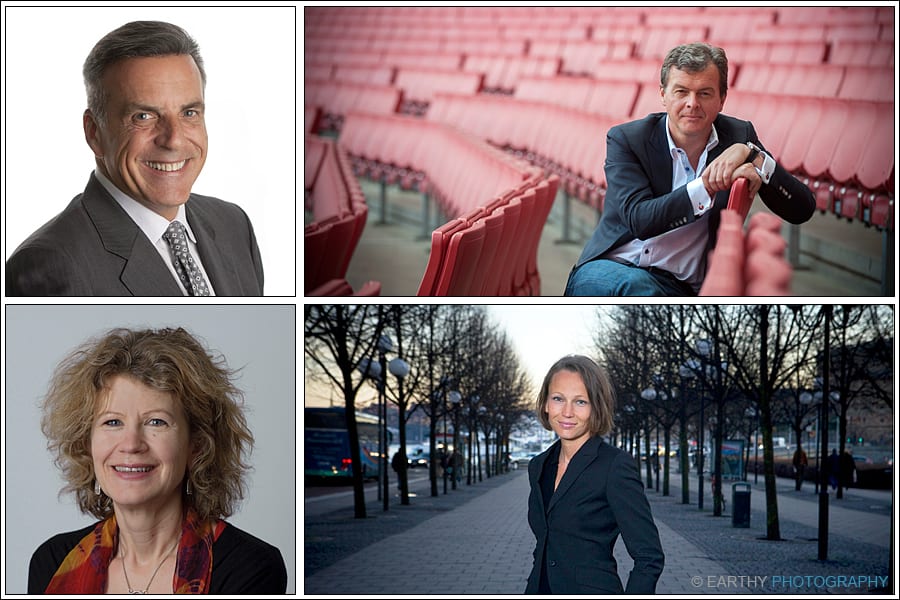
Headshots vs. Portraits: What’s the Difference?
We’re often asked about the difference between a corporate headshot and a corporate portrait. The difference comes down to how the subject is presented, the image size, its intended use, and the style of photography used to capture it.
Headshots
Headshots focus on the subject’s face, typically shot from the shoulders up, sometimes including part of the chest. These images are often captured with studio lighting, using two or three light sources to minimise shadows and create a smooth, flattering effect. In a professional headshot, the subject usually maintains eye contact with the camera, offering either a slight smile for a formal appearance or a broader smile for a more approachable appearance.
While patterned or coloured backgrounds can be used, solid colours like white, grey, or black are preferred, as they keep the viewer’s attention on the subject without distractions. White backgrounds are particularly popular because they allow for easy digital editing, making it simple to place the image onto various backgrounds for use in marketing materials. Recently, a trend has emerged toward using office backgrounds in headshots to add a modern, authentic touch.
For companies needing headshots of many employees, setting up studio lighting on-site allows for efficient, cost-effective photo sessions. This approach also minimises disruptions, as employees don’t need to visit an external studio. Often, a single session can accommodate a large number of employees, making it a convenient option for corporate clients.
Portraits
Portraits, however, go beyond the face to capture a person’s full character and style, often set in an environment that reflects their personality or professional image. Portraits can range from half-body shots (waist up) to full-body images. The lighting is more versatile, and may include studio lighting, natural light, or ambient lighting, depending on the mood or setting desired.
Corporate portraits are often shot on location – either indoors or outdoors, to include a meaningful background, which might feature elements of the subject’s workplace or personal interests. This setting adds context and can communicate more about the person’s role or company culture.
For the best outcome, corporate portraits are typically booked as individual sessions. This allows ample time to create a tailored set of images that genuinely represent the individual.



















